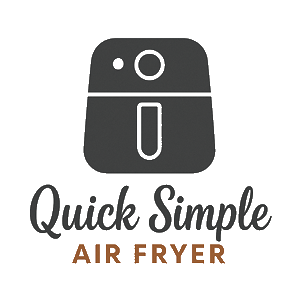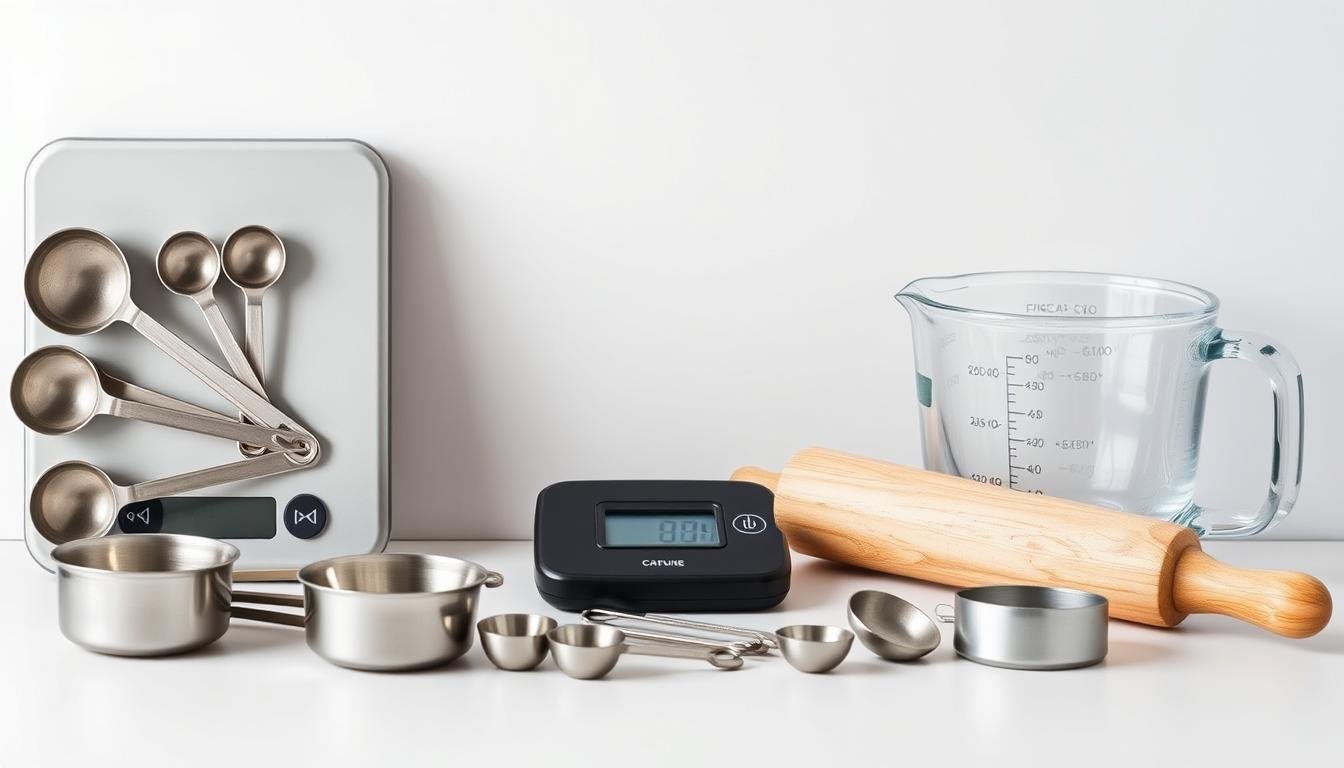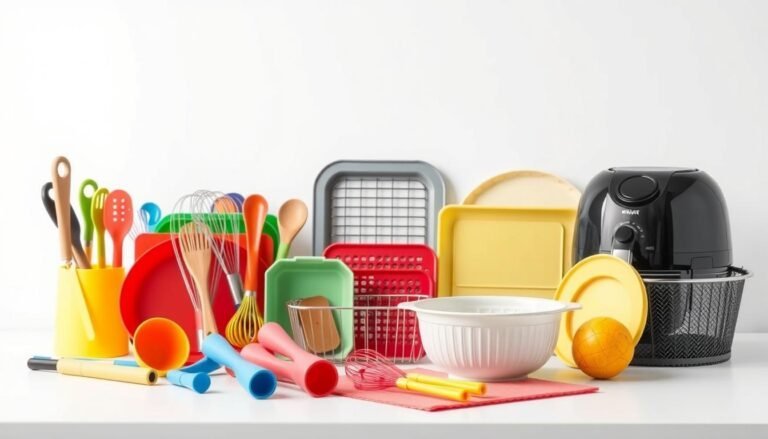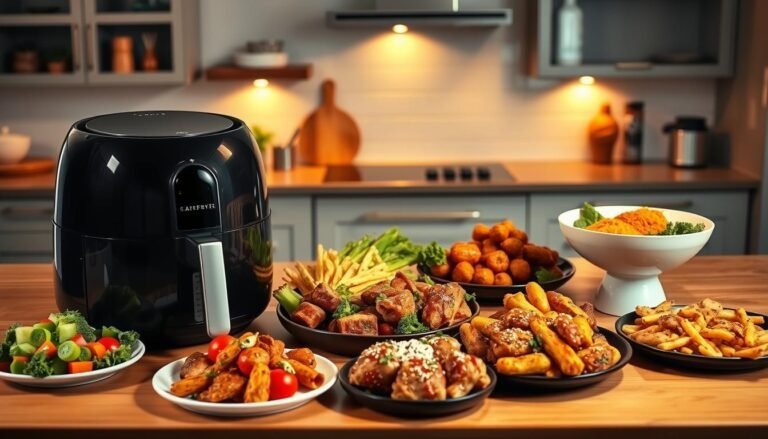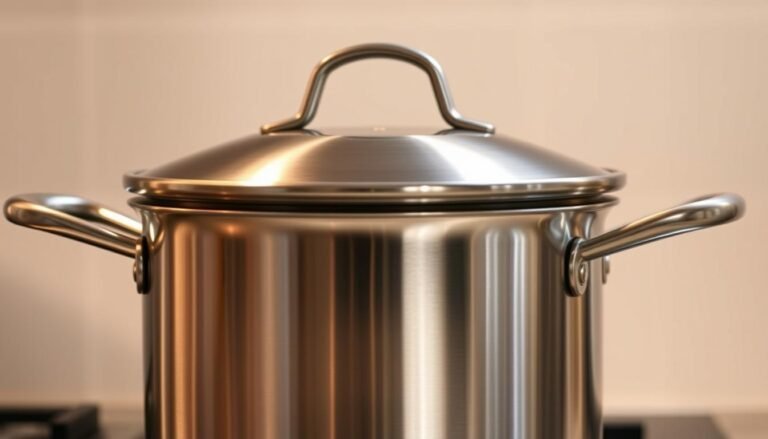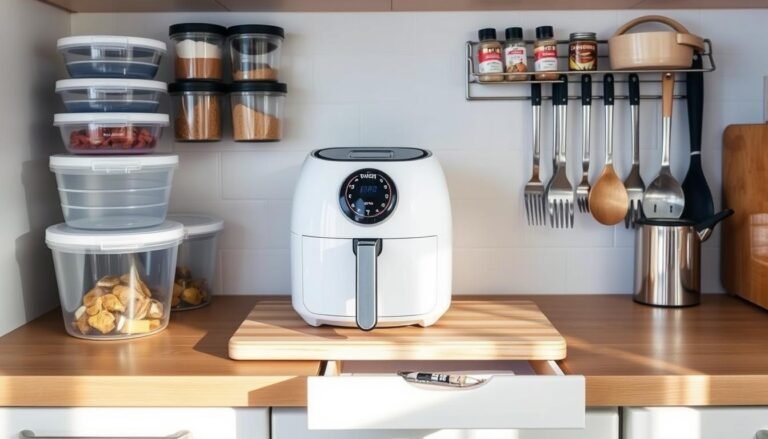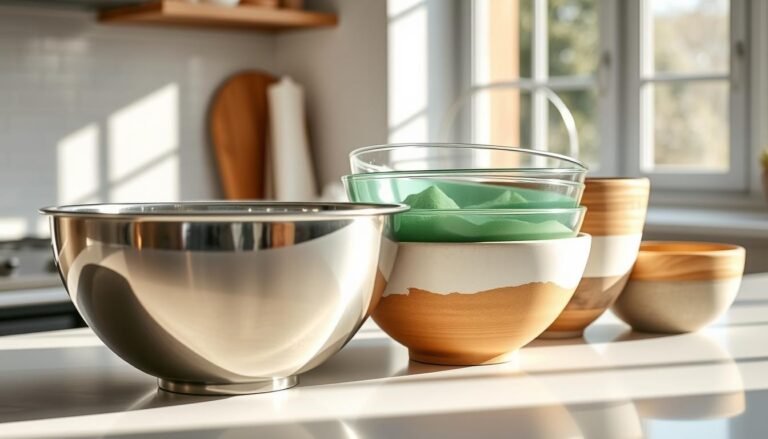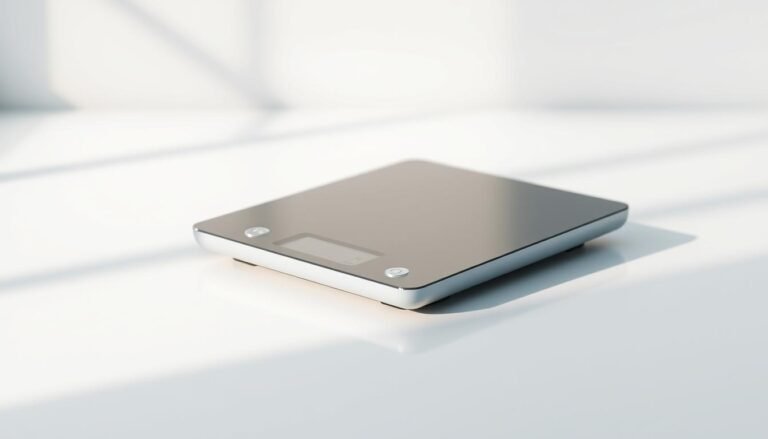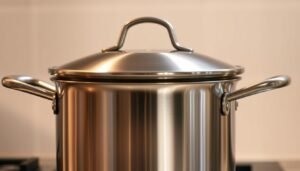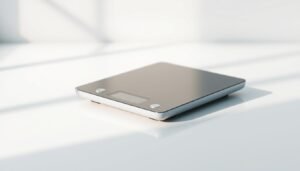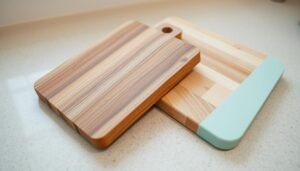Disclosure: This Post Contains Affiliate Links; We earn a commission on purchases.
Accurate measurements are key to great baking and cooking. The right kitchen measuring tools can really change a recipe’s success. Measuring Cups and Spoons are vital for getting the right mix of ingredients.
Experts say using the correct Measuring Cups and Spoons is important. It makes sure your dishes come out right. For more tips on the best measuring tools, check out The New York Times Wirecutter. They have detailed reviews of different measuring cups.
Key Takeaways
- Accurate measurements are key for great baking and cooking.
- The right Measuring Cups and Spoons can really make a difference.
- Choosing the right kitchen tools is important for the perfect mix.
- There are many types of Measuring Cups and Spoons, each with its own benefits.
- Using and caring for Measuring Cups and Spoons can make them last longer.
Why Precision Matters in Culinary Measurements
Accurate measurements are key to making great recipes. Precision is very important in cooking. It can make a big difference between a good dish and an excellent one.
The Science Behind Cooking and Baking Measurements
Cooking and baking need precise ingredient amounts. Measurement precision helps these chemical reactions work right. This leads to the right texture, taste, and look.
How Measurement Errors Affect Chemical Reactions in Baking
Small mistakes in baking can mess up the chemical reactions. Too much of some ingredients can make things go wrong. For example, too much leavening can make baked goods rise too much and then fall.
The Difference Between Cooking and Baking Precision
Cooking can be a bit more flexible with measurements. But baking needs to be exact because of its chemical reactions. Cooking can be more forgiving, but being precise helps too.
Common Measurement Mistakes and Their Impact on Results
Some common mistakes are using volume instead of weight and guessing ingredient amounts. These errors can make the final dish not turn out right.
Volume vs. Weight Measurements
Weight measurements are usually more accurate than volume. This is because ingredients have different densities. In baking, where precision is very important, using weight is best.
Eyeballing Ingredients: When It Works and When It Doesn’t
Eyeballing ingredients can work in some cooking. But in baking, it’s too risky. Precision is key when the exact amounts of ingredients matter a lot.
Knowing how important precision is in cooking and baking can help improve your skills. Using the right cooking utensils and techniques is key to getting it right.
Essential Measuring Cups and Spoons for Every Kitchen
Accurate measurements are key to a great recipe. Quality measuring cups and spoons help a lot. They are vital for both chefs and home cooks.
Liquid Measuring Cups: Features and Uses
Liquid measuring cups help measure liquids well. They have a spout or lip for easy pouring.
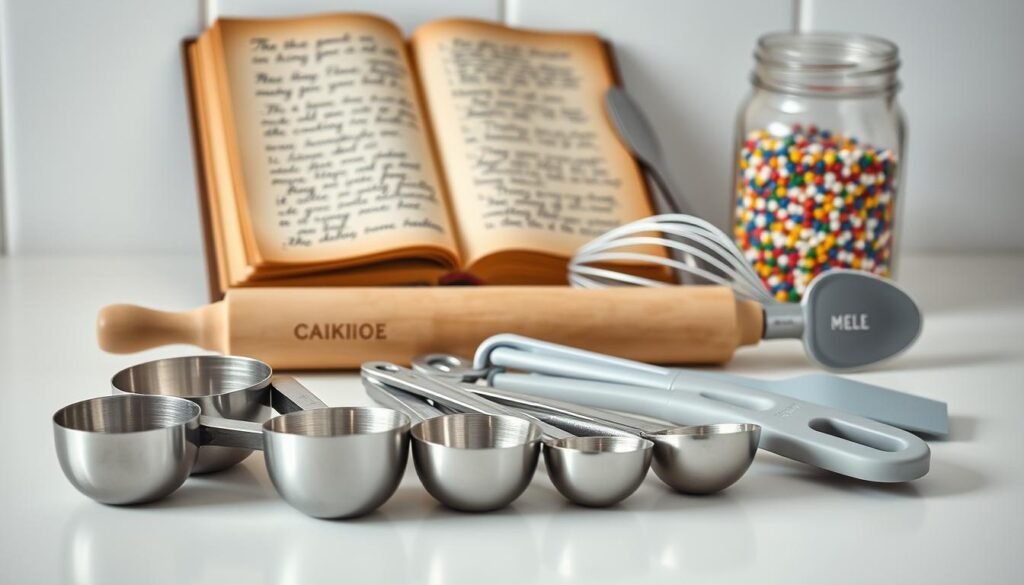
Glass cups are tough and won’t scratch easily. Plastic ones are light and cheaper. Choose based on your kitchen’s needs.
Reading the Meniscus for Accuracy
For accurate measurements, read the meniscus at eye level. This means looking straight at the liquid’s surface.
Dry Measuring Cups: When and How to Use Them
Dry measuring cups are for dry ingredients like flour and sugar. They let you scoop and level ingredients.
Nesting Sets vs. Individual Cups
Nesting sets save space and come in various sizes. Individual cups are more versatile but take up more room.
Level vs. Heaped Measurements
For dry ingredients, level off the cup for exact measurements. Use heaped measurements for brown sugar.
Measuring Spoons: From Pinches to Tablespoons
Measuring spoons are key for small amounts of dry and liquid ingredients. They come in metal and plastic.
Metal vs. Plastic Durability
Metal spoons are strong and can handle high heat. Plastic ones are light and cheaper.
Specialty Spoons for Odd Measurements
Some sets have special spoons for odd amounts like pinches. They add to your kitchen’s versatility.
How to Properly Use Measuring Cups and Spoons
Getting the right measurements is key in cooking and baking. Using measuring cups and spoons correctly is the first step. It’s important for both seasoned chefs and beginners to know how to measure ingredients well.
Techniques for Measuring Dry Ingredients
Measuring dry ingredients needs a bit more care than liquids. You must use the right techniques.
Flour: Spoon and Level Method
For flour, use the spoon and level method. Spoon flour into the cup and level it with a knife. This avoids packed flour and ensures accurate measurements.
Sugar, Salt, and Other Granular Ingredients
For sugar, salt, and other grains, just scoop and level. Use a dry measuring cup to avoid spills.
Best Practices for Measuring Liquid Ingredients
Measuring liquids is different from dry ingredients. Here are some tips to follow.
Placing on Flat Surfaces for Accuracy
For liquids, place the cup on a flat surface. This prevents spills and makes reading easier.
Converting Between Metric and Imperial Measurements
In today’s kitchen, you might see recipes in different systems. Knowing how to convert between them is helpful.
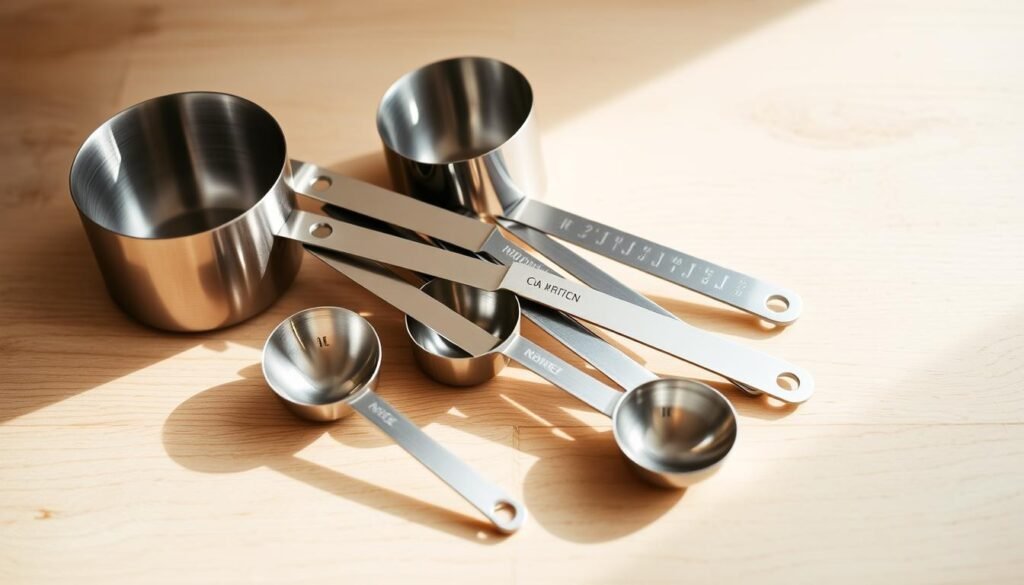
Measuring Sticky or Unusual Ingredients
Ingredients like oils and honey can be hard to measure because they’re sticky. Here are some tips for measuring them right.
Oils, Honey, and Molasses Tips
For sticky ingredients, lightly spray your measuring cup or spoon. This makes them slide out easier, saving you from waste and mess.
Measuring Herbs and Spices Accurately
Herbs and spices are strong, so measuring them right is important. Use a dry ingredient measuring spoon and level it off for the right amount.
Selecting Quality Measuring Cups and Spoons for Your Kitchen
Choosing the right measuring cups and spoons is key for good results in baking and cooking. The quality of your tools affects how accurate your measurements are. This is true for both liquid and dry ingredients.
Materials and Durability Considerations
The material of your measuring cups and spoons matters a lot. Different materials have different benefits.
Stainless Steel, Plastic, Glass, and Silicone Options
Stainless steel is durable and won’t rust, making it a top pick. Plastic is light and cheap, while glass is clear and safe. Silicone is flexible, great for sticky ingredients.
Heat Resistance and Dishwasher Safety
Heat resistance is key for measuring cups, for hot liquids. Dishwasher safety makes cleaning easy. Stainless steel and glass are often dishwasher safe. But, some plastic and silicone need hand washing.
Essential Features to Look For
When picking measuring cups and spoons, look for important features. These ensure they work well for both dry and liquid ingredients.
Clear Markings and Readability
Clear, easy-to-read markings are vital for accurate measurements. Choose cups and spoons with big, clear lines that won’t fade.
Ergonomic Handles and Stability
Ergonomic handles make using measuring cups and spoons easier, even with dry ingredients. They should also be stable, not tipping over easily.
Budget Options vs. Premium Sets
Deciding between cheap and expensive measuring cups and spoons depends on how often you cook and bake. It also depends on your budget.
Cost-Benefit Analysis for Home Cooks
For those who cook now and then, cheaper options might be enough. But, if you bake a lot, investing in better tools is worth it. They are more accurate and last longer.
Professional-Grade Measuring Tools
For serious cooks and chefs, professional-grade tools are best. They are made for heavy use and offer the most accurate measurements.
Maintenance and Care of Your Measuring Tools
To get precise cooking and baking, you must care for your measuring cups and spoons. Keeping them in good shape helps them last longer. It also keeps your measurements right on target.
Cleaning and Storage Best Practices
Wash your measuring cups and spoons after each use. Warm soapy water works for most. But, some might need extra care. Always dry them well to avoid water spots.
Preventing Warping and Damage
Don’t let your measuring tools get too hot or cold. Keep them in a dry spot, out of the sun.
Organization Systems for Easy Access
Put your measuring cups and spoons in a special drawer or container. This saves time and keeps things tidy. Choose a system that’s easy to use and see.
When to Replace Your Measuring Cups and Spoons
Even with good care, your measuring tools will wear out. Check them often for damage or mistakes.
Signs of Wear and Inaccuracy
Watch for rust, cracks, or worn-out marks. If you see these, it’s time for new tools.
Upgrading Your Measurement Tools
Think about getting new tools if your old ones aren’t working well. New ones can give you better measurements and make cooking and baking simpler.
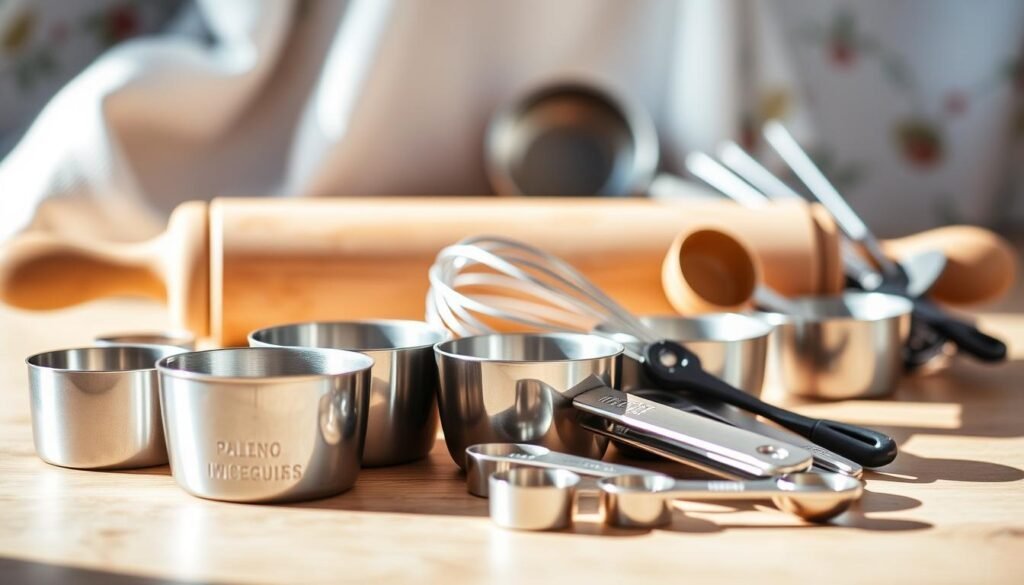
Conclusion
Accurate food measurements are key to great cooking and baking. Measuring cups and spoons are vital for precise recipes. They help home cooks and bakers improve their skills.
Getting quality Measuring Cups and Spoons is a smart move. It ensures your measurements are right. This is true for both experienced chefs and beginners.
Follow the tips in this article for better results. With the right tools, you’ll cook and bake with confidence. You’ll know your measurements are always correct.
FAQ
What is the difference between dry and liquid measuring cups?
Why is it important to use measuring spoons accurately?
Can I use a regular cup or spoon instead of measuring cups and spoons?
How do I clean and maintain my measuring cups and spoons?
What materials are measuring cups and spoons typically made of?
How often should I replace my measuring cups and spoons?
Are digital measuring cups and spoons more accurate than traditional ones?
Can I use measuring cups and spoons for both cooking and baking?

Ryan Conlon is the creator of QuickSimpleAirFryer.com, where he shares easy tips, tricks, and ideas for getting the most out of your air fryer. Focused on speed, flavor, and simplicity, Ryan helps home cooks make crispy, satisfying meals without the mess or hassle of traditional cooking. Whether you’re new to air frying or looking for fresh inspiration, Ryan’s practical advice makes it simple to enjoy quick, delicious results every time.
Subscribe to Our Newsletter
